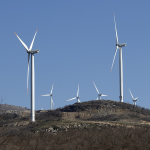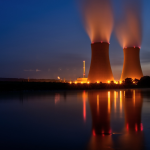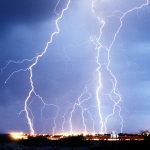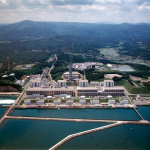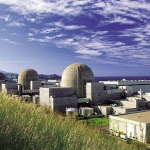"[A] censorious report on National Public Radio, citing a poll, accuses Republican voters of being content to 'do nothing' about climate change. In fact, neither party proposes to do anything about climate change. Democrats propose to spend a lot more money doing nothing.” – Holman Jenkins, Wall Street Journal
nuclear power
Politicians need to seem to be doing SOMETHING, even if it is ill-advised, profligate, and futile, endangers Americans' standard of living and the nation's security. It applies to much of today's policymaking, from mitigation of climate change to the regulation of chemicals and genetic engineering.
On May 29, the Vogtle 3 nuclear reactor was brought to 100% power for the first time. It's getting closer to adding another 1100 MW to the grid, with its sister plant, Vogtle 4, not far behind. This is significant because the Vogtle reactors are the first new nuclear power plants built in the U.S. since the 1979 Three Mile Island meltdown.
The evidence is in: genetic engineering promotes sustainable farming, vaccines save lives, and nuclear energy is our best hope of powering society in a changing climate. But the question remains, how do you convince a generally skittish public to embrace the science behind these technologies? Our answer: make a movie.
What d’ya say – want to design a nuclear reactor? And why not? It’s a slow day, and what else are we going to do?
If the media was doing its job instead of providing free marketing and public relations to the renewable energy industry, it would have reported that Europe's energy transition has come at great cost because of massive subsidies, higher taxes, and poor decisions.
The new Biden Administration has a full plate. Here are the science, technology, and health policies it should prioritize.
At one point, nuclear power provided 25% of Germany's electricity. But the fallout from Chernobyl, both political and real, led to a moratorium on construction and an initial planned phaseout of all nuclear reactors by 2022. That deadline subsequently was extended to 2032, but after the events at Fukushima in Japan, the phaseout policy deadline reverted back to two years from now. Today, Germany gets 11% of its electricity from nuclear sources. A study from the National Bureau of Economic Research measures the fallout.
Here's what we have this time: How to fund the scientific enterprise ... Our complicated relationship with nuclear power ... Ways to read and enjoy more ... and an overlooked environmental consequence to legalizing marijuana.
When it comes to energy and climate policy, there's little rationality to be found. Those who believe that climate change is an existential threat often reject nuclear power in favor of wind and solar, despite those options being insufficient to power the planet. That said, to embrace nuclear energy, we also must have a realistic solution to the problem of waste.
Despite a claim made by Congresswoman Susie Lee, Yucca Mountain is not a threat to Nevadans' health. Grandstanding and fearmongering by politicians is why America has an energy policy that's completely backward.
Ships could be floated to developing countries which often lack the capital for large construction projects. And they could simply plug a ship into their power grid, buying electricity like any consumer.
